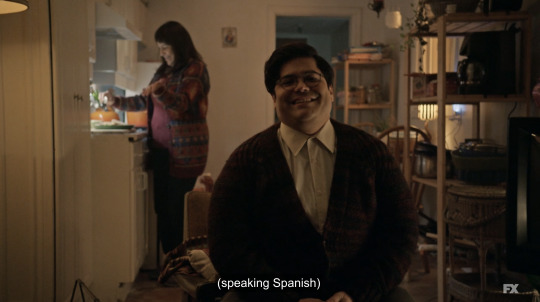#(i know it's in spanish but i turned on captions just in case they're useful. i hope that's okay.)
Text
MAIKA (specifically the ONA mascot) was not the first known use of Catalan in VOCALOID. A prototype male Catalan vocal was briefly demonstrated at a TEDx Talk in Barcelona in 2010. It was made by Music Technology Group, a Barcelonian company that worked on VOCALOID with YAMAHA and later established Voctro Labs as a spin-off company. No other details about this vocal are currently known, and it was likely never intended to be fully developed.
(source: TEDx Talks on YouTube, Vocaloid Wiki)
#(i know it's in spanish but i turned on captions just in case they're useful. i hope that's okay.)#vocaloid2#(< it's from january 2010 so i'd assume so...)#voctro labs#he sounds vaguely like bruno but i think it's different enough that i can say he's probably a separate voicebank.#private vocals
34 notes
·
View notes
Note
I've had experiences where "speaks native language" was in a language I understand and it turned out it was actually gibberish (or "saying my movie lines is my favorite, blah blah" type improv) I guess because they didn't pay someone to speak real words, so I just assume every time the subtitles don't know what someone is saying it's because the script doesn't know either. Not that this is a good decision when making a movie, but it's the one people make apparently
I've had those experiences, too, but that's usually not the case with CC. Like WWDITS is one of the many, many shows that does this, most often when Guillermo speaks to his mother. (Though only sometimes? Which is weird. They caption the Spanish sometimes but not others, even in the same scene. Usually the shorter phrases like "ah, tu película" are captioned, but anything longer than that gets the dreaded (speaking Spanish).)
Example:


See?
Like as someone with passable understanding in several languages but who can't hear for shit, I can tell you that the language is often correct (though not always, and certainly not always pronounced well) but they just don't bother captioning it. It drives me crazy. It's especially egregious when it's a word or phrase commonly understood by an English-speaking audience. Like a character says "bonjour" and the CC just says "[speaking French]".
Related issue: when bad words are bleeped in the CC but not the spoken dialogue...? It's such a weird decision that I think probably comes from only being willing to do one version of the CC between an edited-for-tv version and one that's not, even when it's played on a tv channel that isn't bleeping the cursing.
Frankly speaking, if there is anything that can be understood (or not understood, if they're using gibberish) by a hearing audience, it needs to be captioned. Even if that captioning is [fake Japanese]. Otherwise the CC is incomplete and people who cannot hear (or like me, can't process sounds well) are being denied the experience that hearing people are getting.
Honestly, I think the issue is mostly that a lot of companies are not willing to shell out on good captioning, which would include quality control proofreaders for more than one language. Like keep in mind that the only reason CC is as widespread as it is is because disabled people sued companies under the ADA to force them into compliance. I grew up in a partially deaf household (and don't have great hearing myself) so I remember what CC was like in the 90s and it was... bad. Really bad. It's better now because people demanded better, and it'll only keep improving if people keep demanding better.
I'm actually fairly passionate about this subject, lmao.
#I grew up watching a lot of foreign films and tv shows because they were the only things with subtitles lmao#also I spent a lot of my childhood watching spongebob in DEAD fucking silence#bc my family forgot to turn on the sound for me hahahaha#replies#wwdits tag#ableism#disability
21 notes
·
View notes